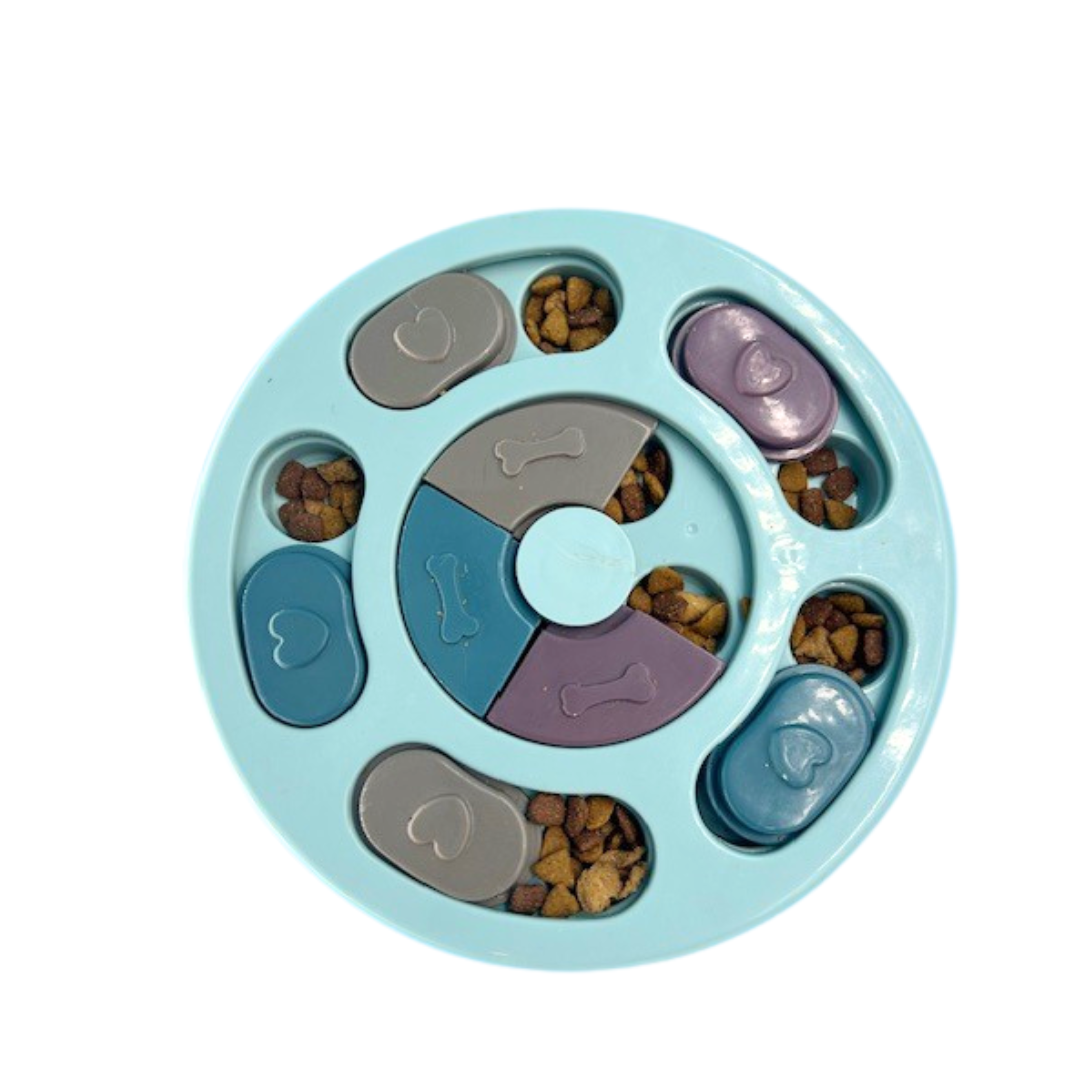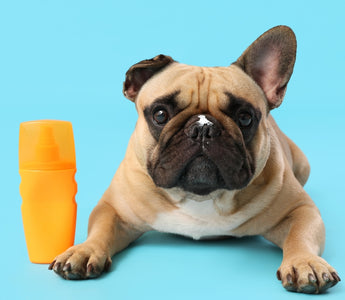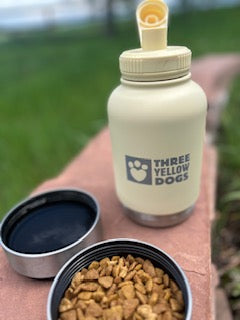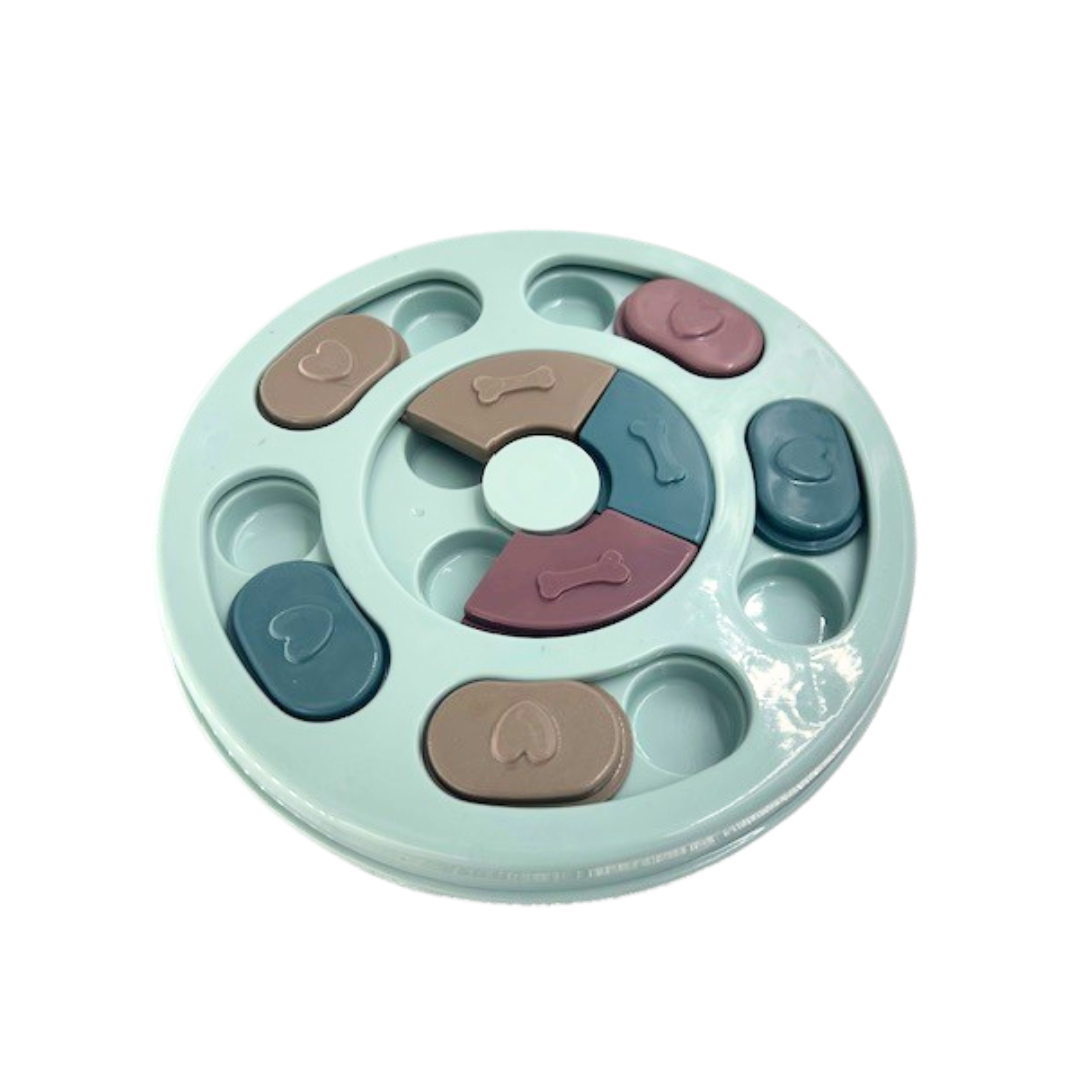Our dogs love spending their days playing in the yard and we love playing outside with them. However, after a sunny day, I noticed one of our pups had a slightly sunburned nose. I've never used sunscreen on my dogs before, and it never seemed necessary. However, seeing my dog's sore nose made me wonder: Do dogs need sunscreen?
The answer is YES!
Just like humans, dogs are susceptible to the harmful effects of ultraviolet (UV) rays. Prolonged exposure to the sun can cause sunburn, skin damage, and increase the risk of skin cancer. As pet owners, it's crucial to understand the importance of protecting our furry friends from the sun's harmful rays. In this blog, we'll explore why dogs need sunscreen, what dogs are more prone to getting sunburn, and so much more. Let's dive in.
Why Do Dogs Need Sunscreen?
Skin Sensitivity: Dogs, especially those with short or light-colored fur, are vulnerable to sunburn. Areas with less fur, like the nose, ears, and belly, are particularly susceptible to UV damage.
Skin Cancer: Just like in humans, excessive sun exposure can increase the risk of skin cancer in dogs. Protecting their skin with sunscreen can significantly reduce this risk.
Painful Burns: Sunburn can cause pain and discomfort for dogs. Protecting their skin helps prevent these painful burns.
What Breeds are More Prone to Sunburn?
Just like fair skinned humans, dogs with light-colored or white fur and those with little to no fur are most likely to suffer from sunburn.
Some breeds of dogs at higher risk of sunburn due to their thin fur coat include; American Hairless Terrier, Boxers, Bulldogs, Bull Terriers, Chinese Crested, Dalmatians, Greyhounds, Weimaraners, Whippets and the Xoloitzcuintli.
What are the Symptoms of Dog Sunburn?
The first and most obvious sign of sunburn on a dog is redness directly on a dog’s skin. The dog’s skin will also be tender to the touch.
Other signs of dog sunburn may include: Dry, cracked or curled edges of a dog’s ears, hair loss, skin ulcer or infections, skin cancer (malignant melanoma) which can present itself as abnormal tumors.
Treating a Dog’s Sunburn:
How you treat a dog's sunburn depends on the severity of the burn. Mild sunburns can be treated at home, while more severe burns may require a visit to the vet:
- If your dog's sunburn is mild, you can try these treatments at home:
- Cool compress: Place a wet, cool towel on the affected area to soothe your dog and reduce their body temperature.
- Aloe vera gel: Apply a small amount of pet-approved aloe vera gel to hydrate and soothe the burn. Be careful not to let your dog ingest the aloe vera, as it can cause vomiting or diarrhea.
- Oatmeal bath: Give your dog a warm oatmeal bath to calm their skin with the oats' soothing and anti-inflammatory properties.
- Keep out of the sun: Keep your dog out of direct sunlight until their skin has healed. You can also use sunblock or sun protective clothing if they need to go outside.
- If your dog has a severe burn, blistered burn, or infection, you should take them to the vet. They may need medication or other intensive medical intervention. Symptoms of a more severe sunburn include:
- Excessive panting
- Lethargy
- Slight fever
- Extremely damaged skin
What Types of Sunscreens are Safe for Dogs?
When choosing sunscreen for your dog, it's important to select products that are specifically formulated for pets. Human sunscreens often contain ingredients that can be harmful to dogs, such as zinc oxide. You can find several sunscreens for Fido online, but it is recommended that you do your research and ask your vet. Especially if your furry family member has a history of skin sensitivities and/or allergies.
Here are some safe options:- Pet-Specific Sunscreen: There are sunscreens on the market designed specifically for pets. These are usually free from harmful chemicals and safe for use on dogs. When selecting a sunscreen please note that not all dog sunscreens are safe for other animals, including cats.
- Natural Sunscreens: You can also use natural ingredients with sun-protective properties. Some effective natural options include:
- Coconut Oil: Provides mild sun protection and moisturizes the skin.
- Aloe Vera: Soothes and protects the skin, especially in areas with less fur.
- Shea Butter: Offers natural SPF and keeps the skin hydrated.
- Carrot Seed Oil: Known for its high SPF, it can be mixed with a carrier oil for application.
- Red Raspberry Seed Oil: Contains natural sun-blocking properties and is rich in antioxidants.
3. Avoid Toxic Ingredients:
The two main ingredients of concern for pets are forms of acetylsalicylic acid and zinc oxide. Of the two, types of acetylsalicylic acid (octyl salicylate, homosalate, trolamine salicylate, among others) can cause serious health concerns for pets. It can lead to vomiting, fever, breathing difficulties, gastrointestinal ulceration, and anorexia. Zinc oxide on the other hand is known to cause mild gastrointestinal signs, such as vomiting and diarrhea, which are typically self-limiting. Zinc poisoning is not common with ingestion of zinc oxide. If your pet gained access to and ingested sunscreen, it is important to seek veterinary attention and contact the Pet Poison Helpline.
How to Apply Sunscreen to Your Dog:
-
Spot Test: Before applying sunscreen all over, perform a spot test on a small area to check for any adverse reactions.
-
Focus on Sensitive Areas: Apply sunscreen to areas with less fur, such as the nose, ears, belly, and any spots where the fur is thin.
-
Reapply Frequently: Reapply sunscreen every few hours, especially if your dog is swimming or playing in the water.
-
Avoid using sprayed sunscreens: Do not spray sunscreen in your dog's eyes or mouth. It is best to apply sunscreen using your hands.
Additional Tips for Sun Protection:
Seek Shade: Whenever possible, provide shaded areas for your dog to rest, especially during peak sun hours (10 a.m. to 4 p.m.).
Protective Clothing: Consider using doggy sun shirts or hats to provide extra protection from the sun.
Hydration: Keep your dog hydrated, as they can become dehydrated quickly in the heat.
Protecting your dog from the sun is an essential part of responsible pet ownership. By using pet-safe sunscreens and taking additional sun protection measures, you can ensure that your furry friend stays safe and healthy while enjoying the great outdoors. Remember, prevention is key and a little effort can go a long way in protecting your dog's skin and overall health. As always, please contact your vet if you feel that your dog has been exposed to any toxic chemicals or if they have an extreme sunburn. If you have any questions please email us,we are here to help.
Sources :
AKC
https://www.petinsurance.com/healthzone/pet-health/health-conditions/sunburn-and-dogs/
PetMD
Petpoisonhelpline.com














